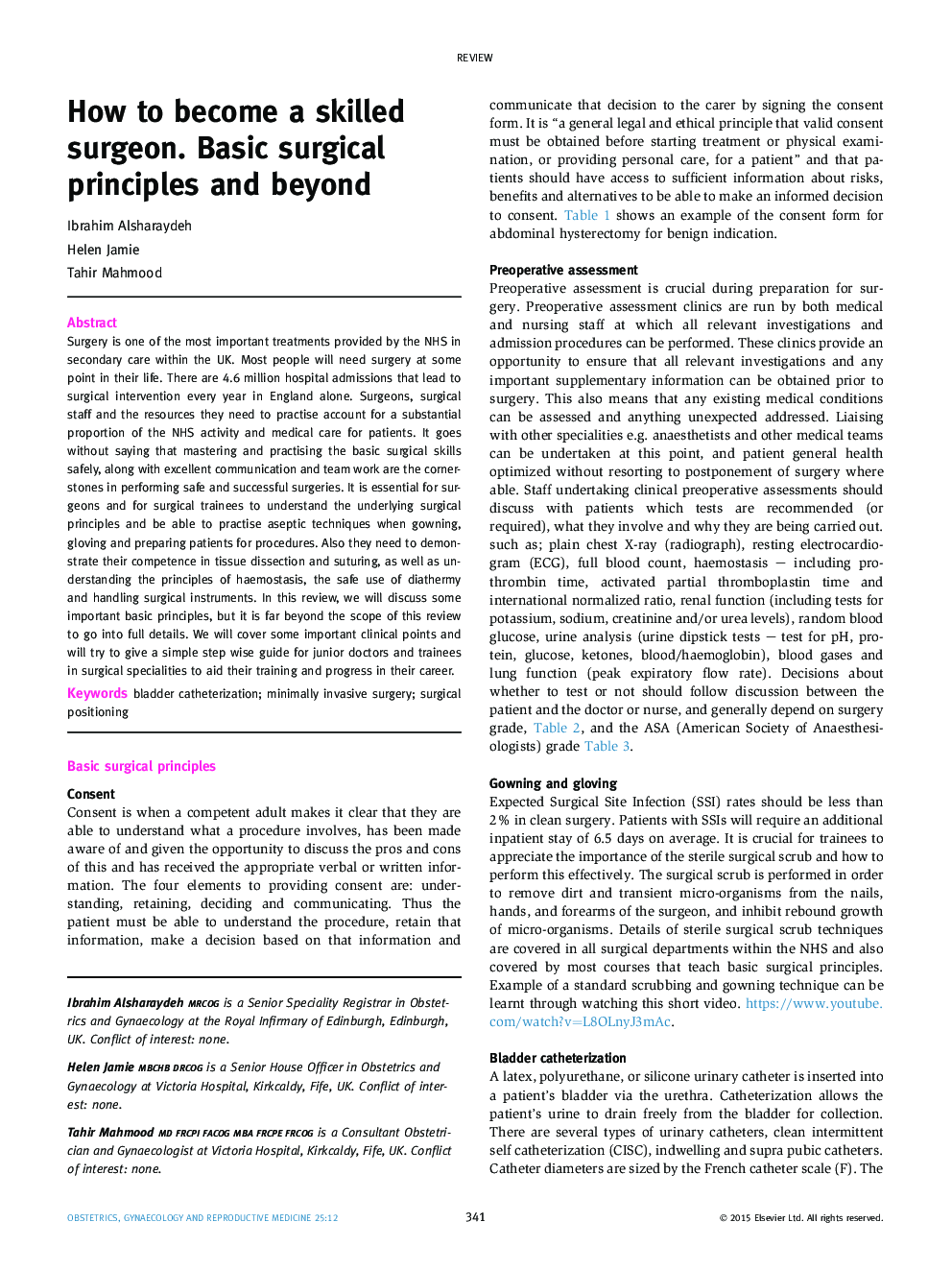| Article ID | Journal | Published Year | Pages | File Type |
|---|---|---|---|---|
| 3966565 | Obstetrics, Gynaecology & Reproductive Medicine | 2015 | 8 Pages |
Surgery is one of the most important treatments provided by the NHS in secondary care within the UK. Most people will need surgery at some point in their life. There are 4.6 million hospital admissions that lead to surgical intervention every year in England alone. Surgeons, surgical staff and the resources they need to practise account for a substantial proportion of the NHS activity and medical care for patients. It goes without saying that mastering and practising the basic surgical skills safely, along with excellent communication and team work are the cornerstones in performing safe and successful surgeries. It is essential for surgeons and for surgical trainees to understand the underlying surgical principles and be able to practise aseptic techniques when gowning, gloving and preparing patients for procedures. Also they need to demonstrate their competence in tissue dissection and suturing, as well as understanding the principles of haemostasis, the safe use of diathermy and handling surgical instruments. In this review, we will discuss some important basic principles, but it is far beyond the scope of this review to go into full details. We will cover some important clinical points and will try to give a simple step wise guide for junior doctors and trainees in surgical specialities to aid their training and progress in their career.
